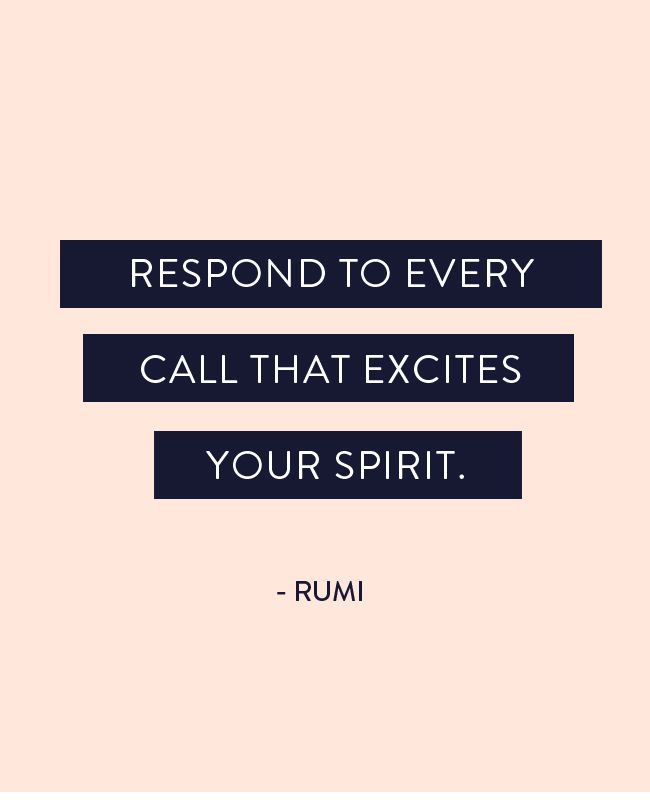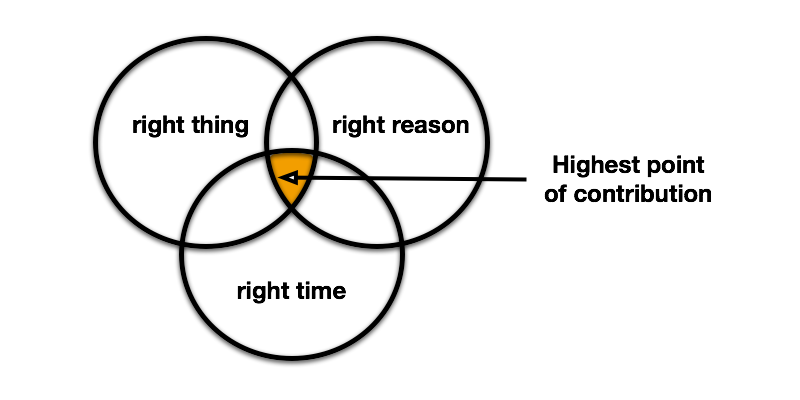However, the question is: how does a core essentialist make decisions?
In the era of the information age, when we are avalanched with hundreds of options every single moment, it is difficult to choose only one. Sometimes we find certain choices attractive. Sometimes people we trust make a suggestion we may find sensible. At times there is the fear of missing out. Some opportunities knock on your door, and you find them irresistible. Being selective is one of the core criteria of essentialism, but wouldn’t you like to have a model to discern what is the most essential choice at the moment? Let me tell you about some of the techniques that have helped me in making decisions by design and not by default.
Do I absolutely love this, does this excite my spirit?
While making a decision, ask yourself: “do I absolutely love this?” This is the most simple and obvious technique to eliminate all that is unessential and choose something you love wholeheartedly. Asking this question works for significant decisions as well as trivial ones. You can be the best when you absolutely love doing it. When you are passionate about the choice you have made, you can easily channel all your energy to the task at hand without feeling distracted.
However, is it always possible or easy to choose what we absolutely love? We are multifaceted individuals. We may have multiple passions, interests, and roles to play in life. For instance, I can be a very ambitious professional and at the same time a committed family man, and a competitive athlete. There are times when I have to choose between spending quality time with my family and attending a business event. I may find this the most agonizing choice I have to make.
We have to make some agonizing choices when there is a conflict among core priorities. Core priorities represent your long term core values, goals and aspirations. It is a vision about what type of individual you want to be.

Identify and Honor your Core Values
When your choices are aligned with your core values, there is no conflict in your mind. In fact, these choices bring joy and give meaning to your life. So, take a few moments and identify your core values. When you pursue your core priorities, you create valuable tools and knowledge. You can make innovative changes in the field you are working in. And you are no longer in a dilemma if you have made the right choice.
One way to pursue your life vision or a long term goal is to prepare a Not to Do list. Jim Collins in his book “Good to Great” says that
“It is important to focus on what to do to become great but it is equally important to focus on what not to do or stop doing”
Jim Collins, Good to Great
As a result, you will have more time to spend on what you are passionate about. You can also set a notification on your phone to keep you on track. Every time the phone notifies you to ask yourself: are you doing what you decided to do?
The Rule Of 90 Percent
There are times when you are not 100% sure about a certain choice. During such dilemma, instead of getting caught up in indecision, you can follow the rule of 90 per cent. This rule is about rating your options between 0 to 100. If you rate any option less than 90 per cent then automatically eliminate it. And from the rest of the options, select one using the concept of “trade-off”. Select an option that has the highest rating.
The rule of 90 per cent can be applied in personal and professional life. It gives us the ability to make a conscious and rational choice rather than making an impulsive decision. Assigning a number between 0 to 100 allows you to analyze the option, weigh its pros and cons. An essentialist narrow down the spectrum of choices and makes explicit choices from the top 10 per cent. As a result, he or she does not end up making too many unnecessary commitments.
Narrow Down the Selection Spectrum

There are times when we are offered several good opportunities. Generally, this happens to successful people. With success comes many different avenues in life. During such times, you may experience overwhelming emotions which may tempt you to make impulsive choices. This may cost the clarity of purpose and distract you from the right path. This also tends to happen to people who overstretch themselves and their children with activities and social commitments, inevitably getting caught in the ‘Ferris wheel of busy’.
While making choices you can keep the following points in mind.
- Examine your options with a bigger picture in mind. Do not consider only one or two aspects, but try to widen your selection criteria. For example, while accepting a job, do not consider the salary alone, but also consider work-life balance, prospects of getting a promotion etc.
- While analyzing options gather unbiased information. Do not collect only that information that supports your assumptions. For example, if you are considering adopting a pet and you’re trying to figure out the ideal pedigree, gather reliable information without any bias. Get familiar with the options and make an unbiased decision.
- Do not get carried away by short term overwhelming emotions and make impulsive choices. Rather create some distance from the situation and make objective choices. For instance, while buying a car, do not feel overwhelmed by its looks alone. Gather relevant information about its performance, safety, and reliability.
- Be prepared to be wrong. Do not be overconfident about your choices. It is possible you may have made the wrong choice in spite of careful examination. The future is uncertain. So, there is a possibility your choice may backfire.
As an essentialist, we are not looking forward to exploring multiple choices at the same time. We are trying to narrow down our search to that option which is absolutely essential. We can make that selection based on our passion, talent, values, and unbiased information. When the choice is made on these criteria, we perform at our highest point of contribution.


